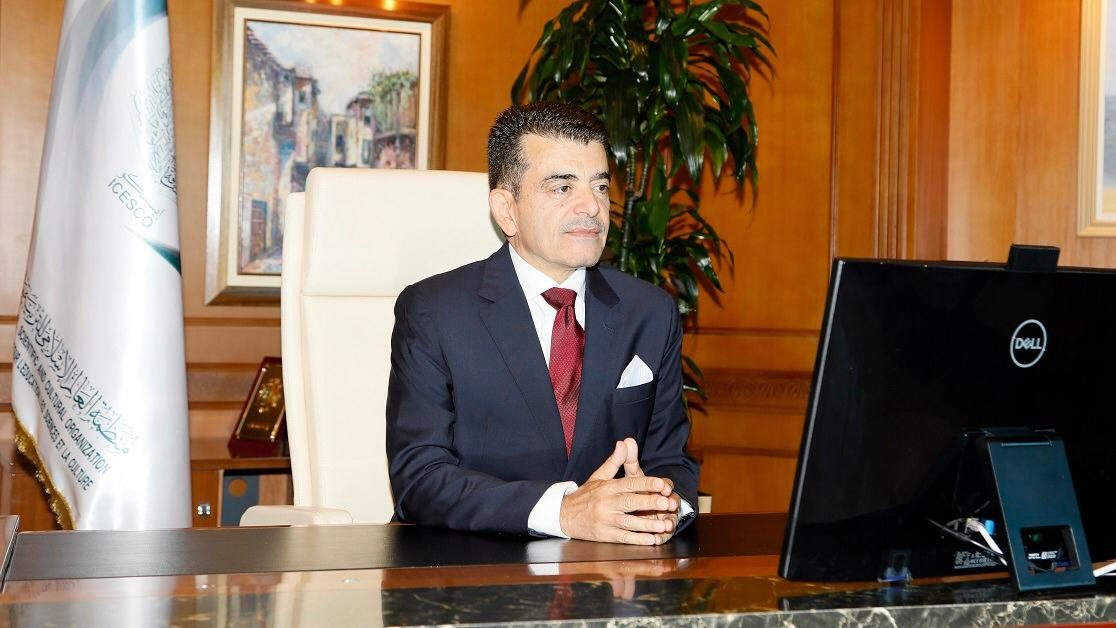
ICESCO Proposes Initiative to Cooperate with the Gulf Countries in Transferring their Educational Expertise to Countries in Need

16 November 2020
Dr. Salim M. AlMalik, Director-General (DG) of the Islamic World Educational, Scientific, and Cultural Organization (ICESCO), confirmed the existence of a great opportunity to achieve a qualitative leap in educational performance. He added that educational systems can also adapt to future expectations amid the Covid-19 crisis that disrupted the educational process.
The DG called for developing smart, innovative, and flexible scenarios and alternatives to deal with crises and meet the 2021 educational expectations.
Dr. AlMalik made the statement on November 15, as part of his address at the 26th General Conference of Ministers of Education in ABEGS’ Member States. Representatives of international educational organizations participated in the videoconference to discuss the future of educational systems in the coming years amid the COVID-19 pandemic.
Dr. AlMalik called on ABEGS and specialized international organizations to cooperate with ICESCO in evaluating technical educational platforms and distance education programs during the pandemic. The goal is to distinguish between the platforms, solve the difficulties, and benefit from successful experiences in the field.

The DG praised the world-level responses of ABEGS’ Member States during the COVID-19 pandemic. He also submitted an initiative to the Arab Gulf States to adopt the transfer of their experiences and successful applications to several ICESCO’s Member States with weak educational systems. The state of the systems was due to the countries’ fragile infrastructure and the limited economic resources, he continued.
Dr. AlMalik added that the countries were headed to a dangerous turn in their educational systems, unable to overcome the unfortunate situation, and in dire need of help to limit the effects of the pandemic.
If the Gulf States were to accept the initiative, ICESCO would be ready to cooperate in the implementation, starting with detailed reports on the affected countries and their urgent needs in educational and technical assistance. Dr. AlMalik concluded his speech by renewing his thanks and appreciation to the Conference Ministers, and to ABEGS, represented by Dr. Ali Al-Qarni, for the efforts made to cope with the educational developments.




